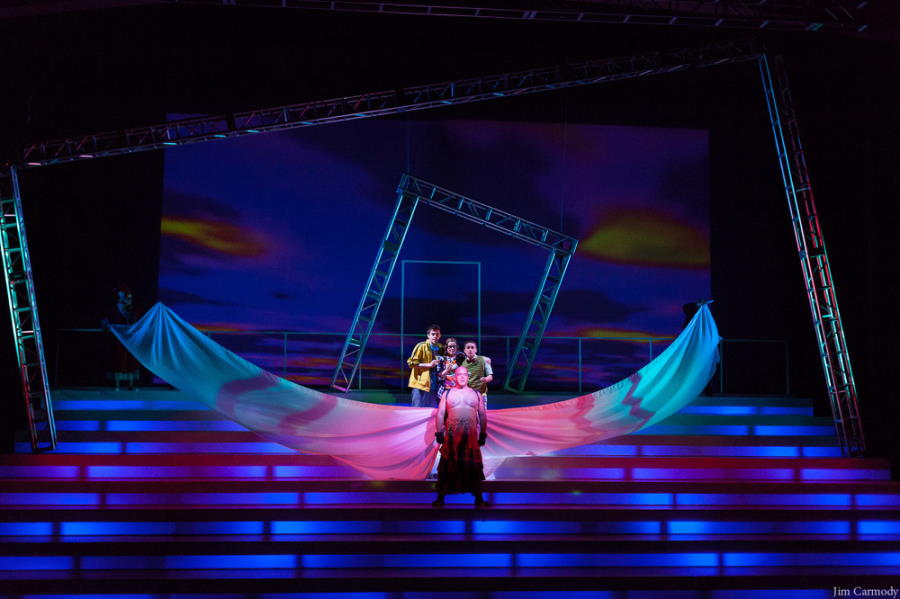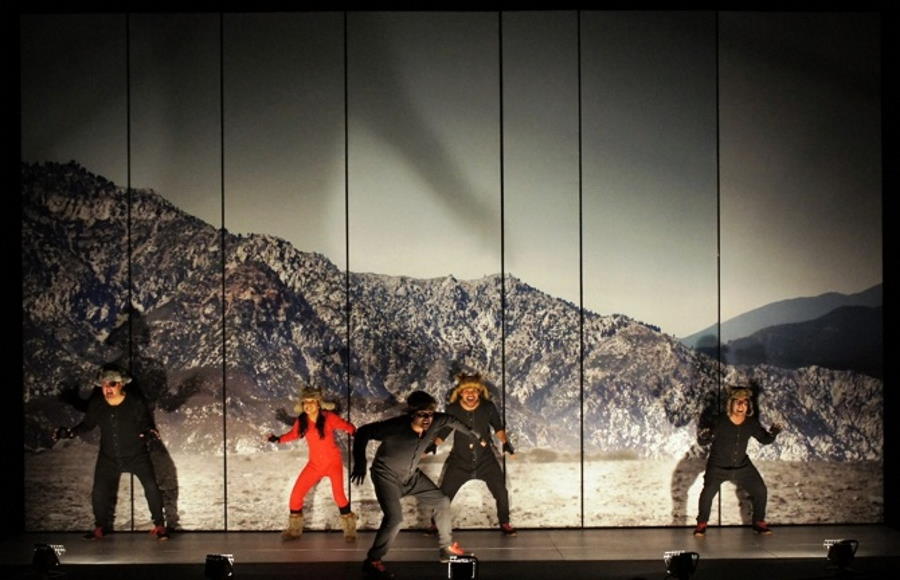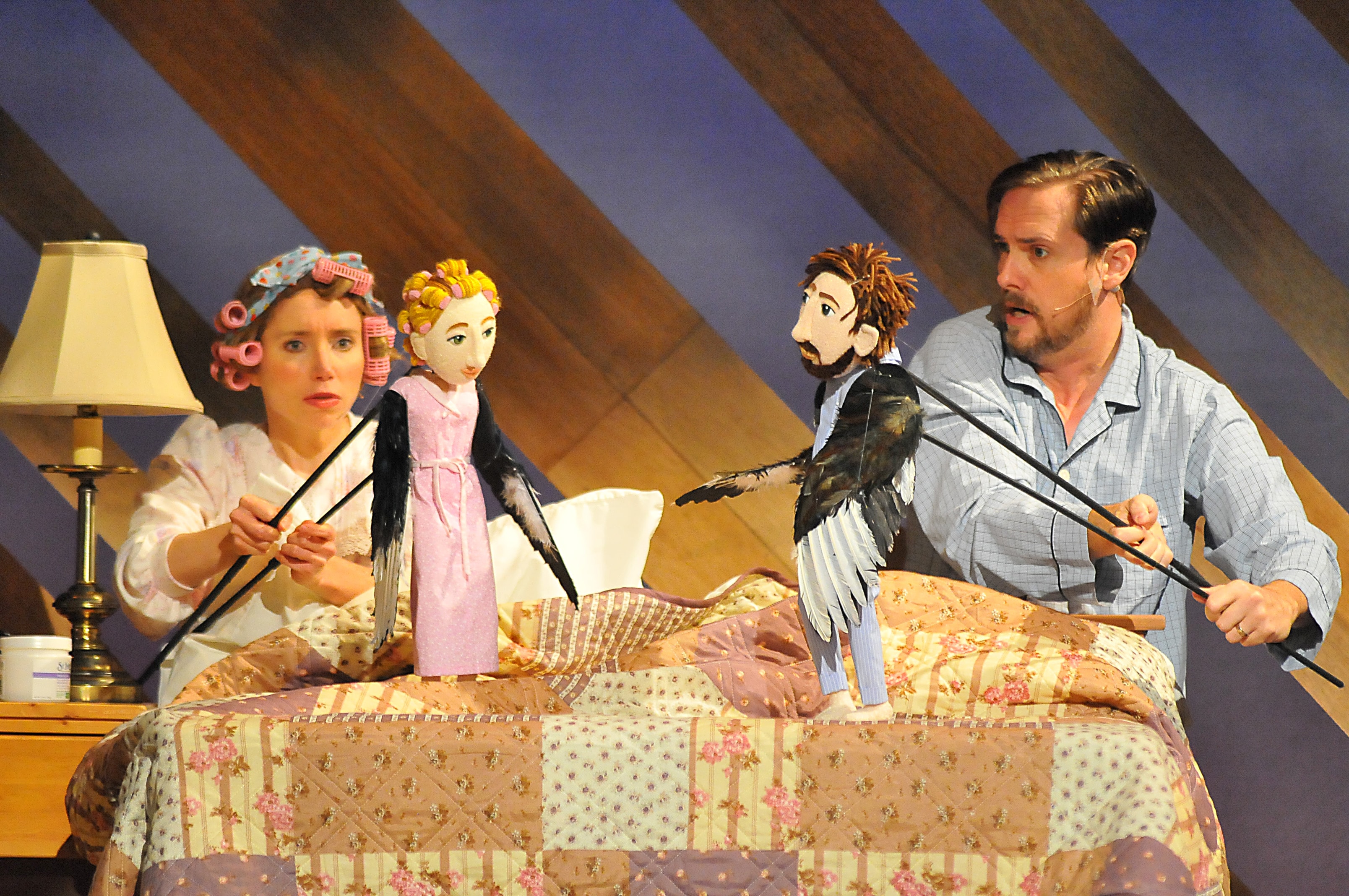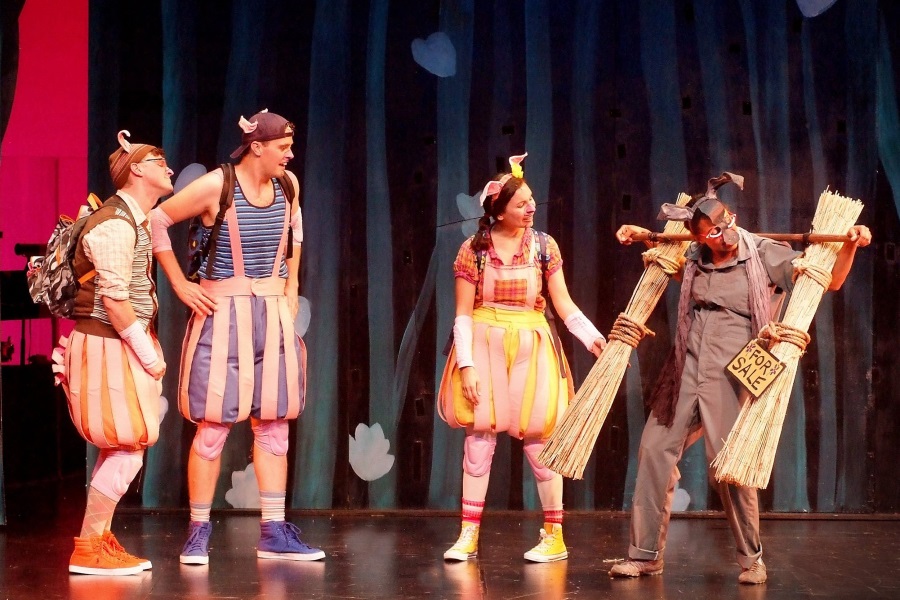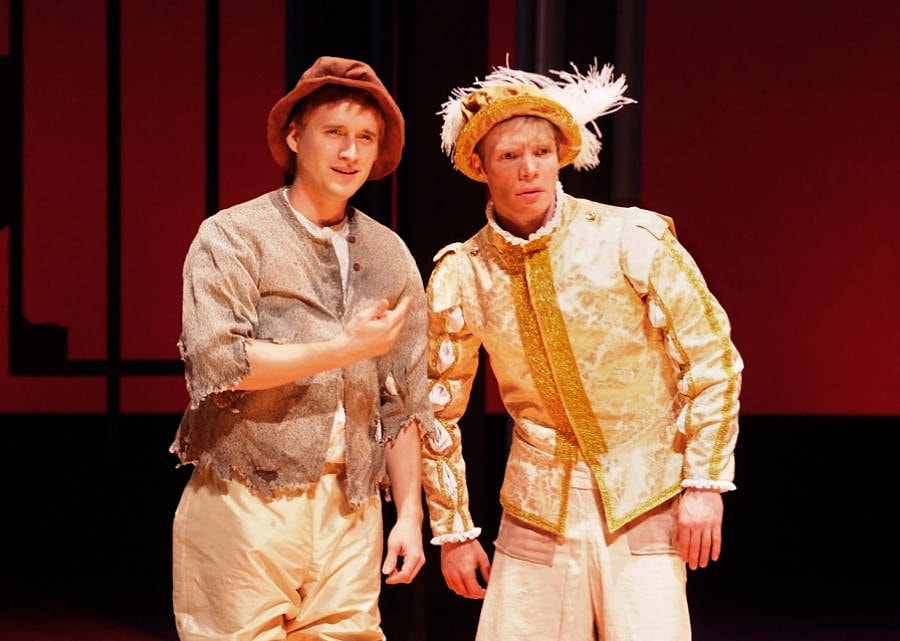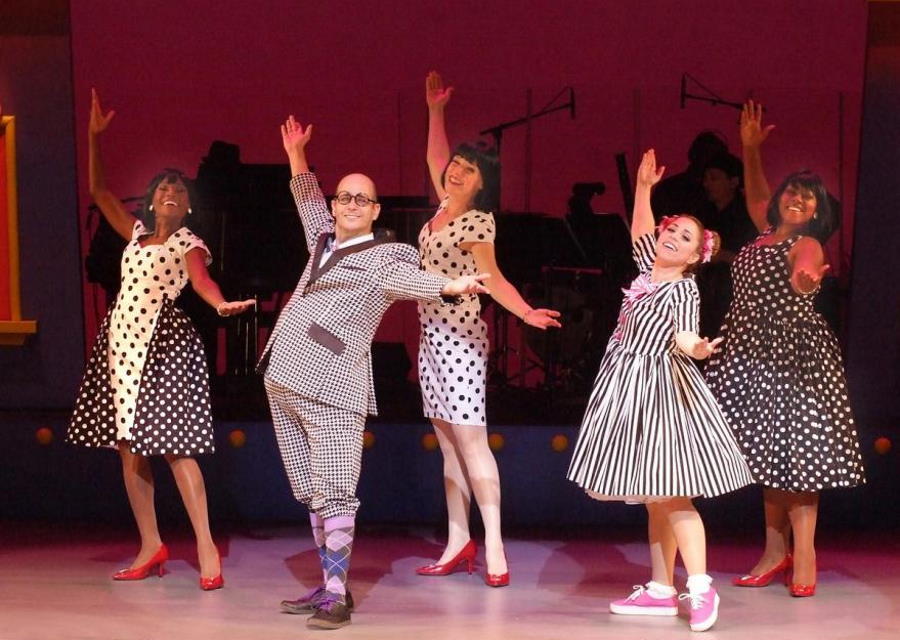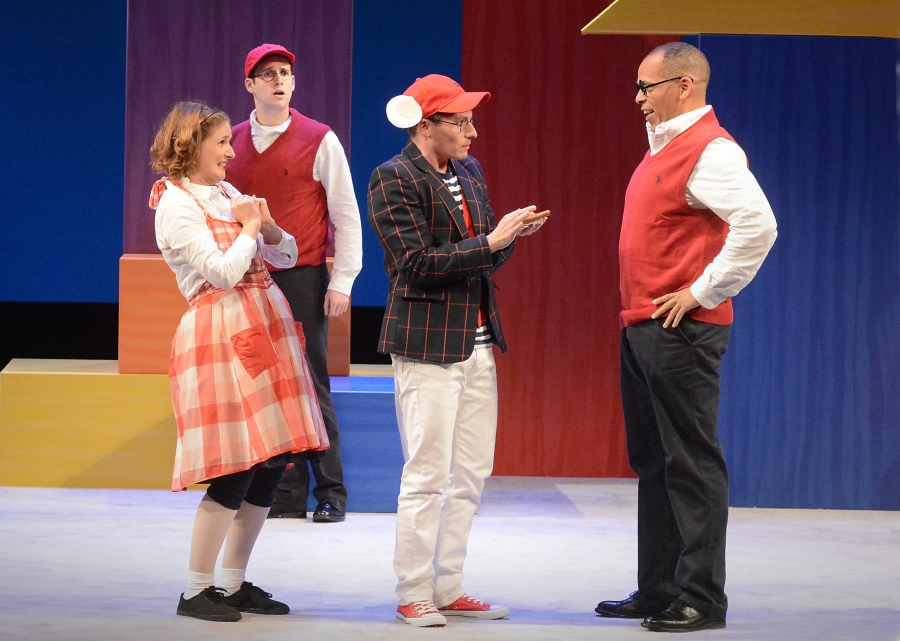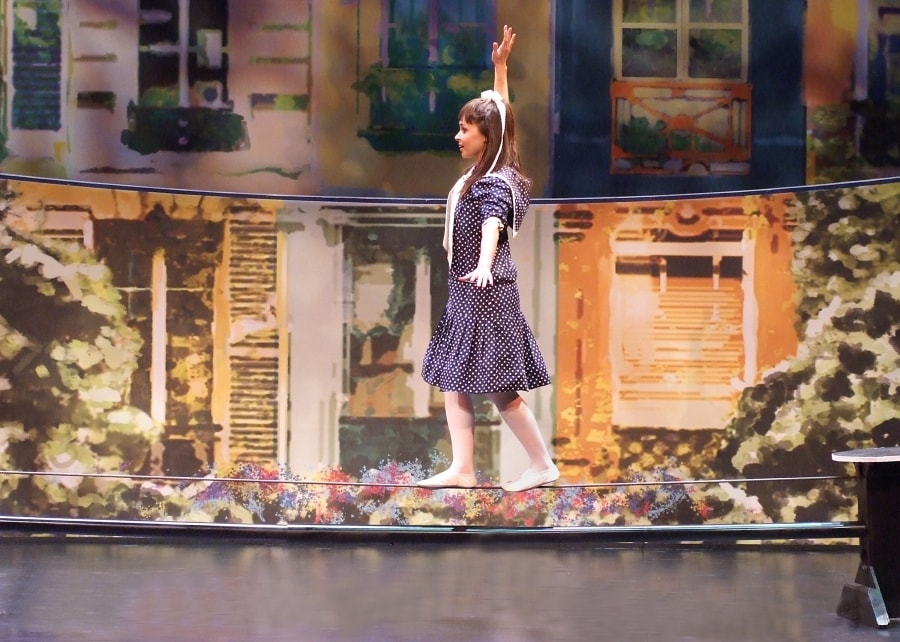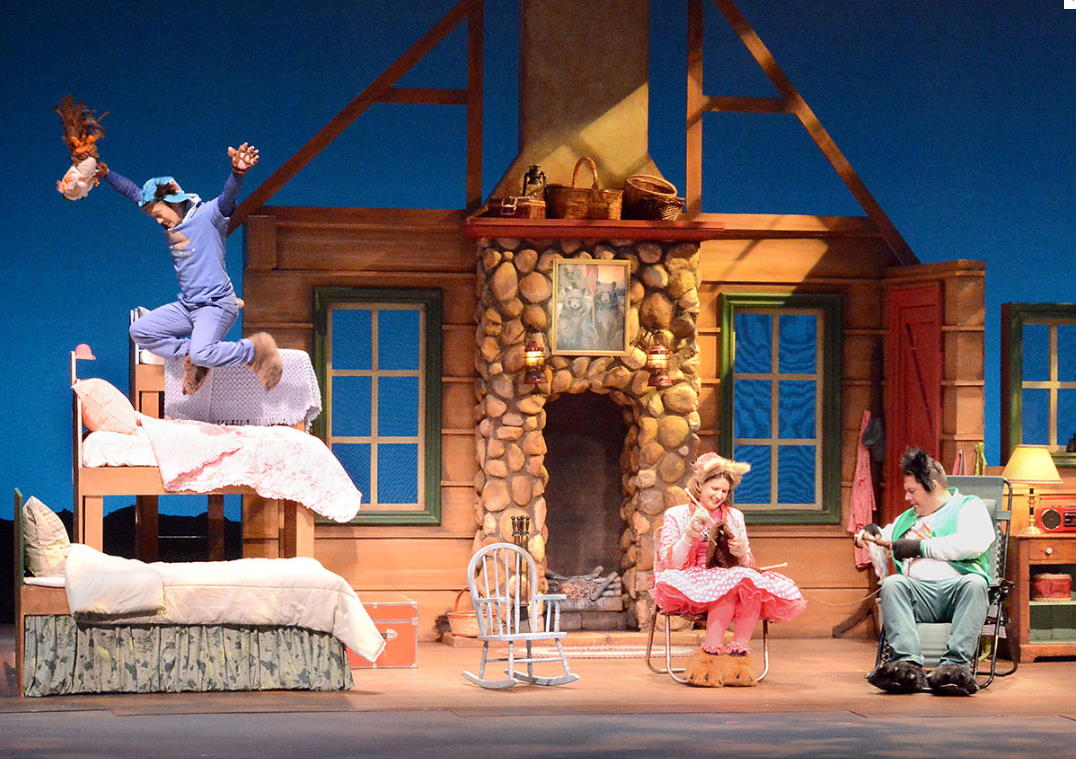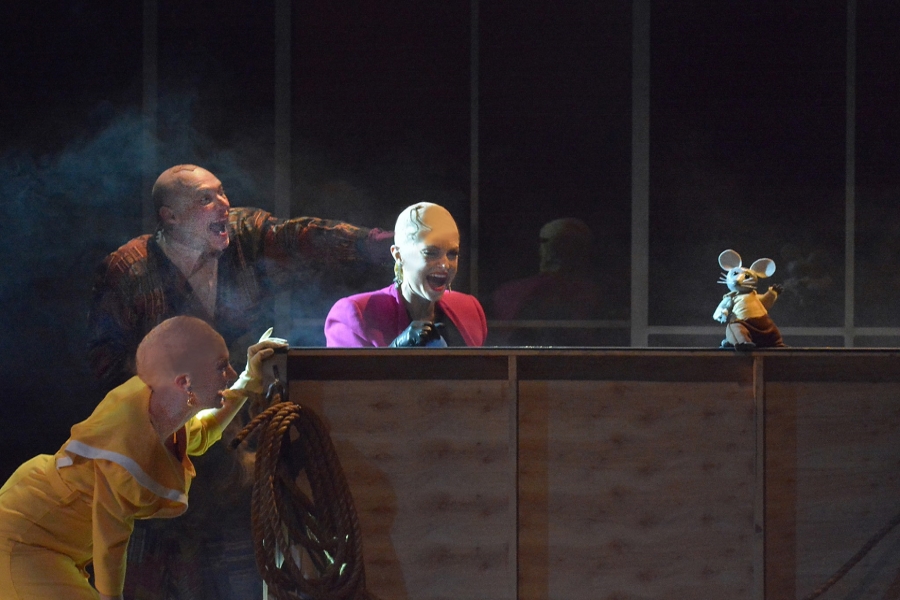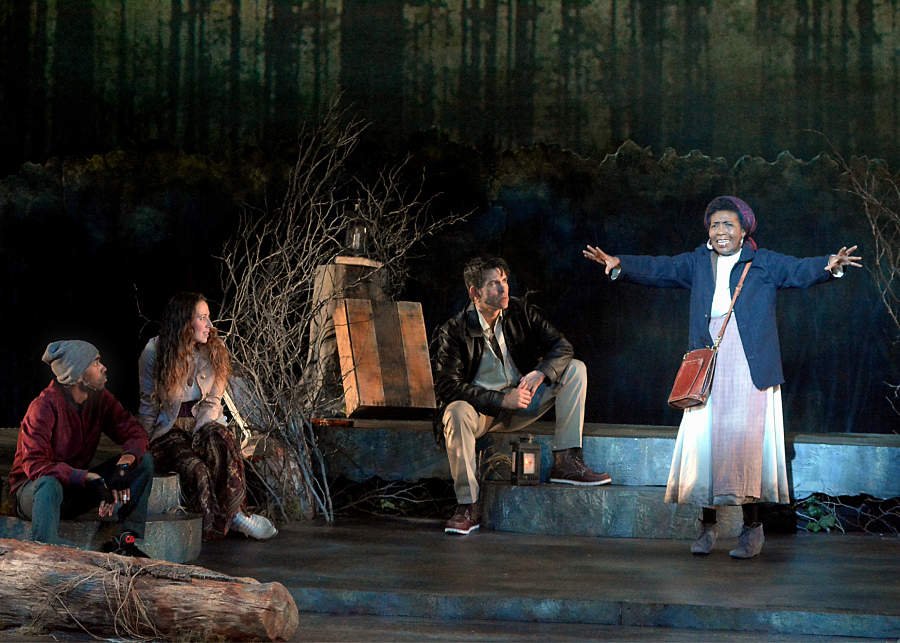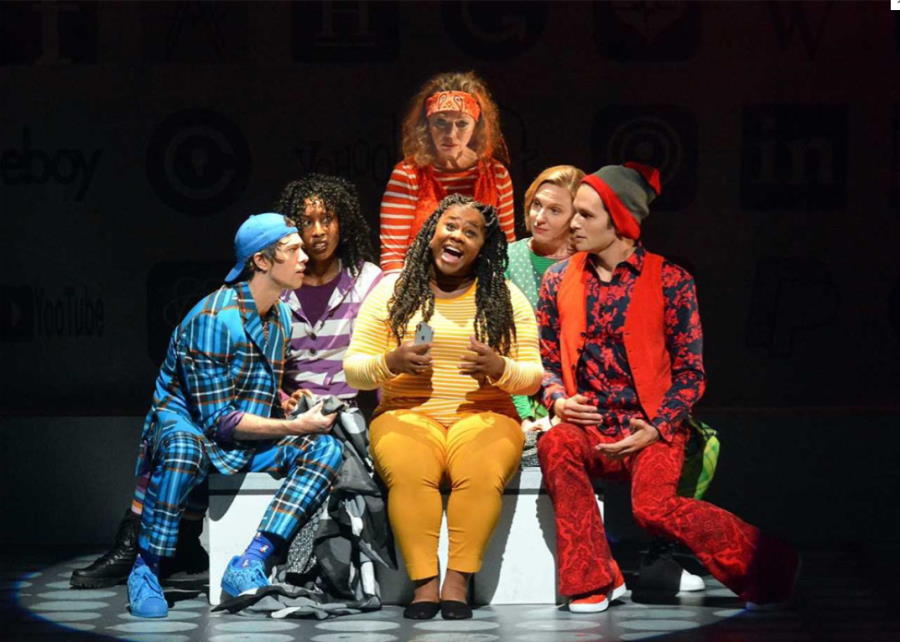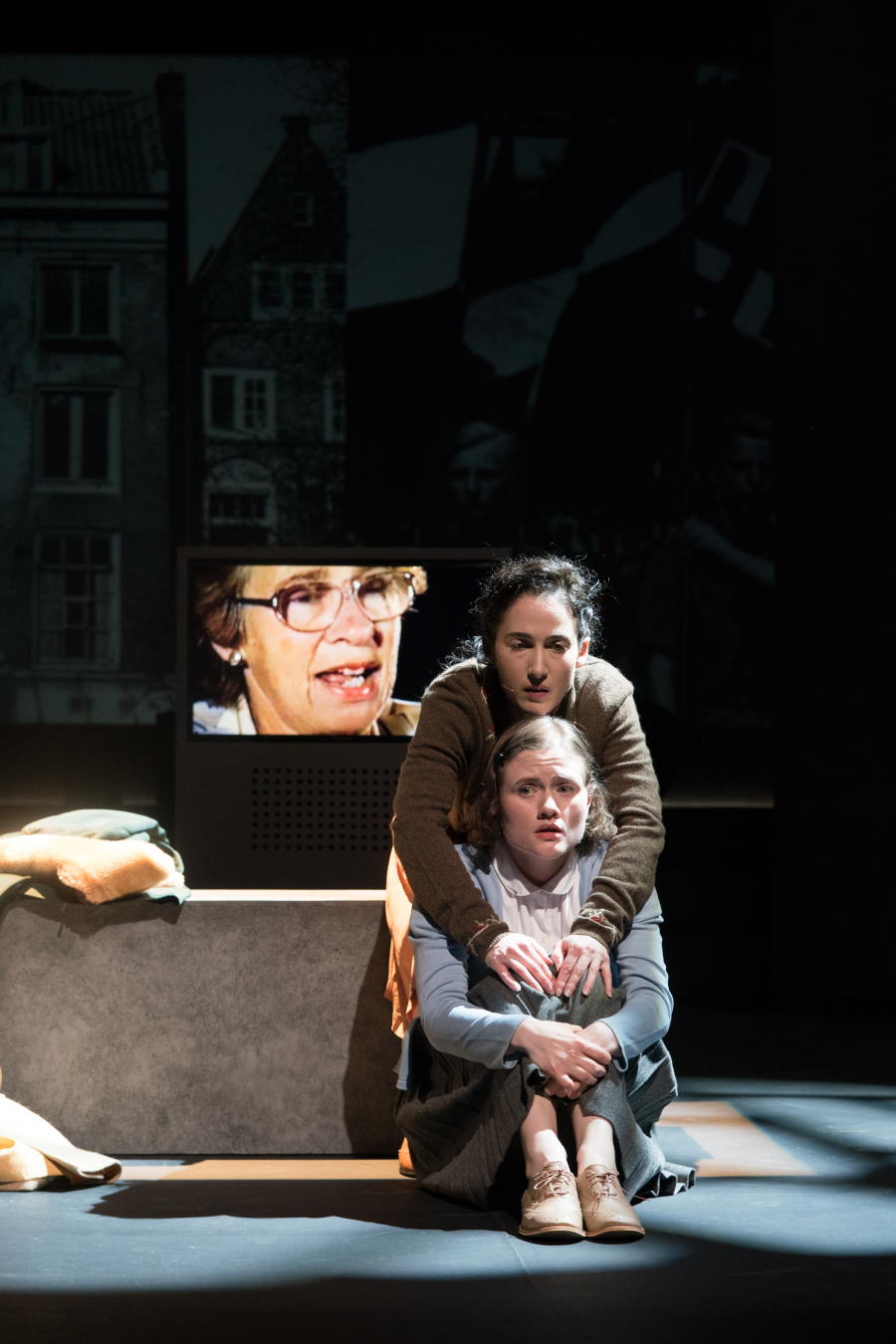The word “beautiful” comes up a lot in conversation with Mireya Hepner, whether she is talking about the 550-seat Lewis Family Playhouse in the Southern California city of Rancho Cucamonga, where for 14 years she produced theatre for young audiences under the company name MainStreet Theatre Company, or talking about the production values of the plays staged there, almost all of them adapted from popular children’s book titles, and all starring Equity actors, featuring Ovation Award-winning designs, and directed by some of the region’s most acclaimed directors of “adult” work.
The word “beautiful” also surfaces frequently in a series of testimonials from actors who worked there, lured by the promise of an Equity paycheck but gratified and moved by the chance to make shows with the highest artistic values, with a mandate, as actor Max Lawrence put it, “to never talk down or pander to young audiences.”
“We were doing plays that happened to be stories kids could come to,” said Hepner, known to all simply as Murry, over the phone last week. She now speaks about MainStreet in the past tense because, as she was the theatre’s sole full-time employee, the elimination of her position in May by the city as part a wider COVID-19 shutdown signals the end of the company, as far as she’s concerned. The city’s community services director, Jennifer Hunt-Gracia, told me that Rancho Cucamonga’s city council retains a “commitment to theatre for young audiences,” that MainStreet was “a temporary casualty” of the pandemic, and that it “will come back—it’s just a matter of when’s the appropriate time.”
Meanwhile Hepner said she has moved on, teaching a theatre class at USC and making plans to start a new TYA company. “It’s hard, because I want to celebrate the work of the actors and designers,” she said.
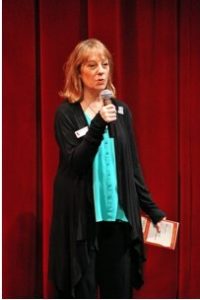
By all accounts, Hepner managed to create something special in Rancho Cucamonga, using the city’s support to turn MainStreet into one of the Southland’s top TYA theatres and leaving, as Hunt-Gracia put it, “a legacy of wonderful experiences for the children of our communities for a 60-mile radius around us.” According to actor Rachel Sorsa, the two MainStreet musicals she appeared in 2018, Frederick and Schoolhouse Rock Live!, were “some of most elevated, sincere, and passionate productions I’ve ever been part of.”
Hepner’s pursuit of ageless beauty began, she said, when she worked as company manager for the late, great mime Marcel Marceau, and, witnessing the way his work attracted “three generations of people,” she realized that TYA “isn’t just for little kids—it actually can be profound.”
That led her to work with the L.A. TYA company Parson’s Nose, which in turn made her a likely candidate when the city of Rancho Cucamonga, some 40 miles east of Los Angeles, was looking to start a TYA theatre at their brand new city-built Lewis Family Playhouse, part of the Victoria Gardens Cultural Center, in 2006. There was a mutual learning curve at first—the city had already picked the titles for the first season but not licensed the scripts—but Hepner started at a high level and never let it drop. For her first production, an adaptation of the staple Miss Nelson Is Missing by playwright Jeffrey Hatcher, she hired director Mark Rucker, an exciting West Coast talent who had never helmed a TYA production before.
In that cast was Ann Marie Lee, who became a regular at the theatre and who recalled with amusement an early backstage gaffe. “The theatre was so brand spanking new,” she said, “it was thought that I’d missed an entrance at the dress rehearsal, the night before we opened—but I was heard from the hallway attempting my audience entrance, yelling, ‘There are no handles on the door, I can’t get in!’ They were there the next morning.”
That was an uncharacteristic snafu, said Hepner, who got relatively unstinting support from the city for her vision, including an insistence on Equity contracts and live accompaniment for all musicals. After the recession of 2008, though, cutbacks to the budget were never really restored, and in recent years rising costs haven’t been met with rising funding. But that didn’t stop Hepner from staging three productions a season, usually including one musical (“I wouldn’t do it if we couldn’t have live musicians—the kids needed to see it wasn’t karaoke,” Hepner said), or running a theatre that, as composer Debbie Wicks La Puma put it, that was “obsessed with quality.” She occasionally raised funds to commission work (Luis Alfaro’s Aesop in Rancho Cucamonga, directed by company favorite Robert Castro) or have a writer rework their material (librettist Elizabeth Diggs was on hand to revise the two-act musical Mirette into a one-act TYA show, which songwriters Tom Jones and Harvey Schmidt liked so much they paid to have it recorded for MTI licensing). But for the most part, and for most of her 14 years there, Hepner said, MainStreet Theatre was a case study in local arts support and impact.
“Because it was brand new, all the schools were excited to come,” Hepner recalled of the first season. “They’d been watching the city build this building for years, and the community was really excited to have it.”
The enthusiasm never really flagged, she said. The majority of the capacity weekday performances were for local schools, and weekends were for family audiences; she considered it a special kind of success when kids who’d attended a show with their school would “beg their parents to bring them back to see the play again on the weekends.”
Doug Harvey, who performed in seven shows at MainStreet over the years, including as Milo in The Phantom Tollbooth, considers it to have been “an artistic home…a special, magical place, even if it was way out in the desert.” Andrew Joseph Perez, who was part of a matter-of-factly multracial cast in The Secret Garden in 2016, spoke to the welcoming quality of the theatre’s culture: It was “the only company I have worked for,” he wrote, “where I didn’t feel belittled, othered, or tokenized.”
The connection with audiences, and a “commitment to community,” is what made working at MainStreet worth “the daily hourlong drive from Sherman Oaks,” said actor Sergi Robles. Actor Heather Taylor recalls a particularly challenging talkback with audiences after MainStreet’s final production, And Then They Came Me: Remembering the World of Anne Frank, written by James Still and directed by Abigail Deser. “The room was full of teens, who had been glued to their seats for the entire show. (Anyone who has spent time with teens knows how big a feat this is to achieve)…The questions they asked amazed me. They wanted answers for how something so horrible could have happened. They wanted facts: hard numbers and statistics. They wanted to know the exact details of how and what people had to do to survive.”
Said actor Janet Greaves, “A lot is asked of a MainStreet audience. It’s not just ‘sit back and enjoy the ride,’ it’s, ‘What do you think about this?’ and ‘How do you feel about that?’ and ‘How can we change this?’”
Some didn’t appreciate this kind of intense engagement with challenging material. The political climate in Rancho Cucamonga changed after the 2016 election, Hepner said; though San Bernardino County went blue that year, it was a narrow win for Democrats. (The region’s congressional representation is likewise fairly evenly split.) So when, in a 2018 production of Schoolhouse Rock Live!, a song about women’s suffrage concluded with a video including images from the 2017 Women’s March, and cast members wearing pink “pussy” hats, some audiences weren’t having it.
As director Art Manke recalled, at the first preview a father stormed out of the balcony “with his wife and children following obediently behind, and complained to the box office that the song, and in particular the hats, were not appropriate for his chidren.” Hepner was forced by city officials—who had seen the show without raising an objection—to remove the hats from the video and the staging, though Manke said she fought this change valiantly.
“She wasn’t fighting for herself,” Manke was quick to add. “She was fighting for the children. She’s a tenacious, visionary producer whose commitment to quality led her to assemble casts and production teams with the highest professional standards. The focus of the work was always about uplifting young audiences, and giving them theatre of the highest quality in an effort to expand their horizons and, by extension, their worldview.”
Recalled Hepner of this unfortunate chapter, “Some people were really upset and called us all sorts of terrible names, and we were not backed up at all by the city. I got a lot of ‘your liberal agenda’ comments. But my agenda was not ever to indoctrinate children. Theatre makes people think and have dialogue—that was always the point.”
That, and creating beauty. Hepner is insistent, as are many TYA theatremakers I’ve known over the years, on erasing the distinction between “adult” work and theatre for kids, as well clarifying that what theatre does is not interchangeable with “arts education.” As she wrote in LA Stage some years ago, “What we’re doing is exposing children to a fully realized professional production that is specifically for them, and that their teachers and parents can share with them. Not every child wants to participate in theatre, but every child has the capacity to be moved, to laugh, to learn empathy, and to be awed by the special magic that happens during a live performance.”
Actor Cat Black, who played Anne Frank in And Then They Came for Me, was talking about her experience in that production, but she could have been summing up the MainStreet legacy when she said, “We all created something beautiful together and I will never forget that.”
Creative credits for production photos: A Wrinkle in Time, adapted by John Glore from the book by Madeleine L’Engle, direction: Robert Castro, set design: Victoria Petrovich, lighting design: Ben Zamora, sound design: John Zalewski; Aesop in Rancho Cucamonga, by Luis Alfaro, direction: Robert Castro, lighting: Ben Zamora, costumes: Raquel Barreto, sound: John Zalewski; The Magic Finger, adapted by David Wood from Roald Dahl, direction: Abigail Deser, scenic design: Sibyl Wickersheimer, lighting designer: Jaymi Lee Smith, costume design: Ann Closs-Farley, sound design: Cricket Myers, puppet design: Michelle Zamora, prop design: Kevin Williams; The Three Little Pigs by George Stiles and Anthony Drewe, direction: Jessica Kubzansky, musical direction: Janice Rodgers Wainwright, choreography: John Pennington, set design: Trefoni Michael Rizzi, lighting design: Jaymi Lee Smith, costume design: Raquel Barreto, prop design: Kevin Williams, sound design: Jason Stephenson; The Prince and the Pauper, adapted by Jonathan Bolt from Mark Twain, direction: Abigail Deser; set design: Michael Smith; Elephant and Piggie’s: We Are in a Play!, adapted from Mo Willems’s book, with music by Debbie Wicks La Puma, direction and choreography: Art Manke; Stuart Little, adapted by Joseph Robinette from E.B. White, direction and scenic design: Art Manke, lighting design: Josh Epstein, costume design: Angela Balogh Calin, prop design: Glenn Michael Baker, music: Debbie Wicks La Puma; Mirette, adapted from Emily Arnold McCully by Elizabeth Diggs, with music by Harvey Schmidt and lyrics by Tom Jones, direction: Casey Stangl, musical direction: Janice Rodgers Wainwright, circus consultant: Rob Mermin; Goldilocks and the Three Bears, music by George Stiles, book and lyrics by Anthony Drewe, direction: Michael Faulkner, choreography: Allison Bibicoff, musical direction: Janice Rodgers Wainwright, scenic design: Michael C. Smith, lighting design: Brian Gale, costume design: Tina Haatainen-Jones; The Witches, adapted by David Wood from Roald Dahl, direction: Abigail Deser, scenic design: Victoria Petrovich, lighting design: Brian Gale, costume design: Sherry Linnell, sound design: John Zalewski, puppet design: Johanna Smith, prop design: Jenny Smith; Oh Freedom! The Story of the Underground Railroad, a play with music by Peter Manos, direction: Saundra McClain, scenic and projection design: Harry Feiner, lighting design: Jared Sayeg, costume design: Dianne Graebner, sound design: Dave Mickey, props design: John McElveney, musical direction and vocal arrangements: Janice Rodgers Wainwright; Schoolhouse Rock Live!, direction: Art Manke, scenic design: Tom Buderwitz, costume design: Angela Calin, lighting design: Josh Epstein, sound design: Cricket Myers, projection design: Sean Cawelti, props design: Akeime Mitterlehner; The Emperor’s Nightingale, by Damon Chua, direction: Tim Dang, scenic design: Tesshi Nakagawa, costume desing: Jojo Sui, lighting design: Brian Gale, sound design and original music: Howard Ho, props design: Akeime Mitterlehner; And Then They Came for Me: Remembering the World of Anne Frank, by James Still, direction: Abigail Deser, scenic and projection design: Yee Eun Nam, costume design: Sherry Linnell, lighting design: Brian Gale, sound design: John Zalewski

